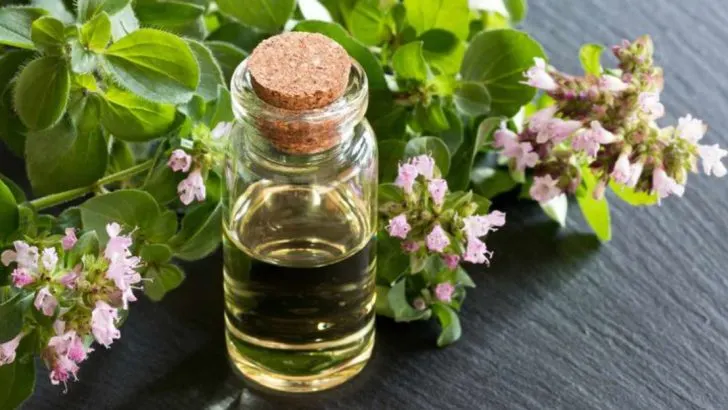If you’ve ever drizzled herb-infused oil over fresh bread, pasta, or salad, you know the difference a touch of flavorful, aromatic herbs can make. Growing your own herbs for this purpose isn’t just rewarding—it ensures your oils are made with fresh, pesticide-free ingredients that you picked at peak potency. Whether you’re a seasoned gardener or just starting, these herbs are both easy to grow and perfect for infusions.
From classic staples like rosemary and thyme to more unexpected flavors like tarragon or lemongrass, these 13 herbs can elevate your cooking, gift-giving, and even skincare DIYs. With just a few plants and some olive oil, you can craft gourmet blends that are as beautiful as they are delicious.
Basil
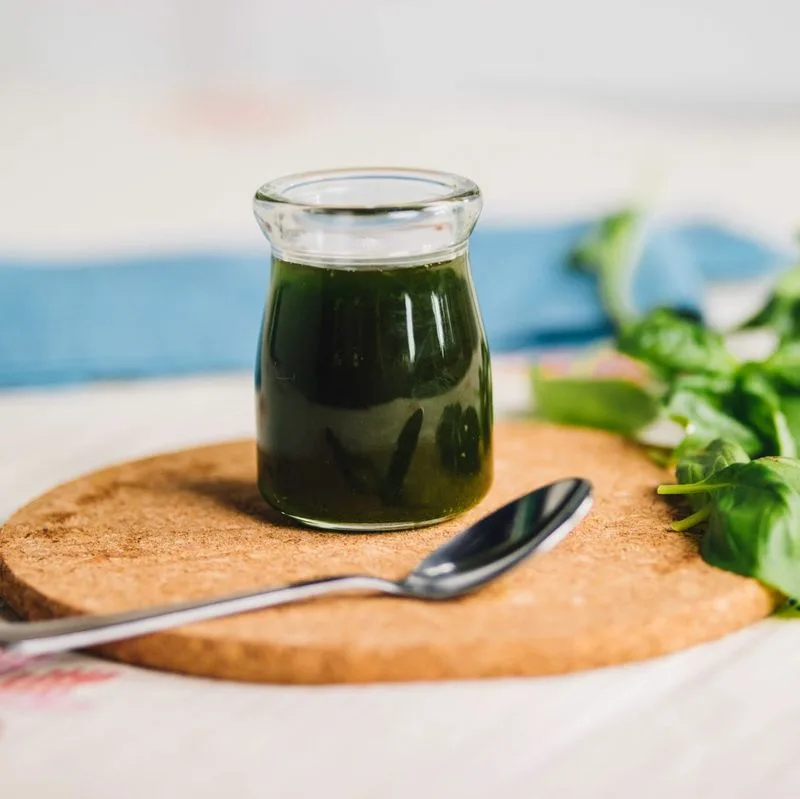
Basil brings a touch of the Mediterranean to your kitchen with its sweet and slightly peppery flavor. It’s perfect for infusing oils, adding a fresh, herbal note to dishes. Imagine drizzling basil-infused oil over a juicy tomato salad or a slice of freshly baked bread. Growing basil is relatively easy, even for those with limited space. A sunny windowsill can suffice. Harvest often to encourage more growth. Ultimately, basil’s versatility and vibrant aroma make it a must-have in any herb garden.
Rosemary
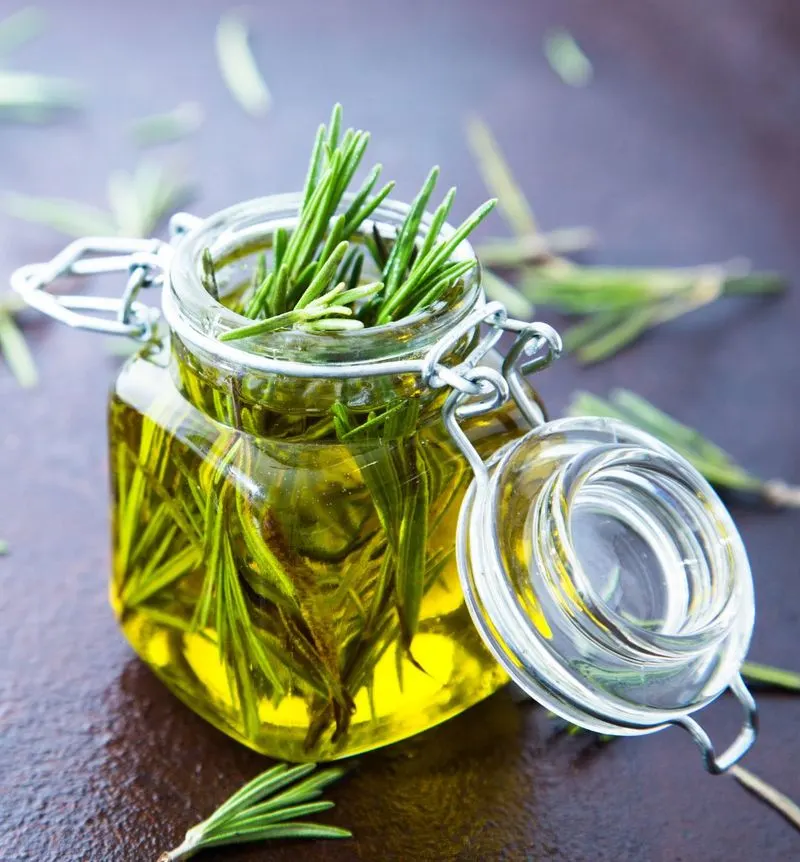
With its robust pine-like aroma, rosemary is a classic choice for infusing oils. Its distinctive flavor pairs well with roasted meats and vegetables. Rosemary’s hardy nature makes it an excellent candidate for indoor and outdoor gardens alike. Regular pruning helps maintain its shape and encourages fresh growth. Picture rosemary-infused oil drizzled over roasted potatoes or mingling with grilled lamb. Its bold character and aromatic strength are sure to enhance your culinary experiences.
Thyme
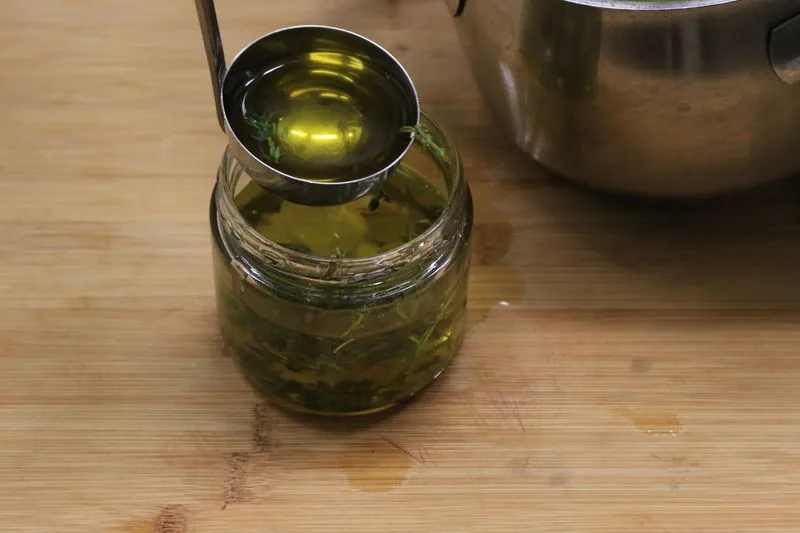
Thyme’s earthy and slightly minty notes make it a versatile herb for infusing oils. Its flavor complements a wide range of dishes, from roasted chicken to savory stews. Easy to grow, thyme thrives in well-drained soil and sunny spots. Regular trimming encourages a bushy growth. Thyme-infused oil can be a delightful finish for grilled vegetables or a flavorful dip for crusty bread. With its rich aroma, thyme adds depth and warmth to your culinary creations.
Oregano
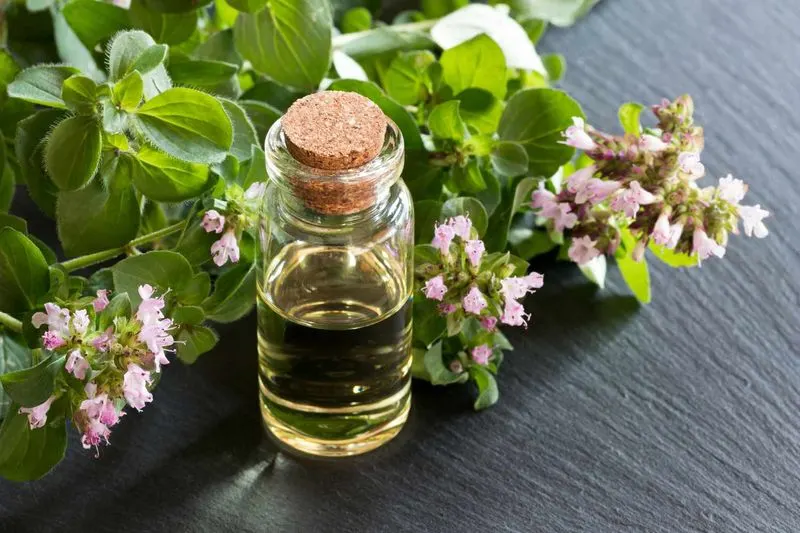
Oregano’s spicy and slightly bitter flavor is a staple in Italian and Greek cuisines. Infusing oils with oregano brings a warm and aromatic touch to your cooking. Imagine enhancing a pizza or pasta dish with a drizzle of oregano-infused oil. Thriving in sunny environments, oregano is a hardy herb that requires little maintenance. Regular harvesting keeps it bushy and full. Its potent flavor and aromatic qualities make it a wonderful addition to your herb garden.
Mint
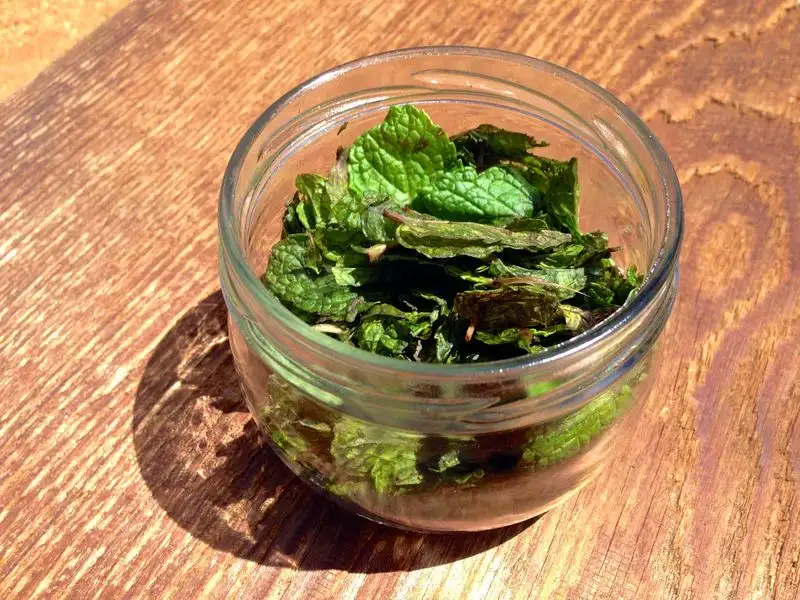
Mint offers a refreshing, cool flavor that’s perfect for infusing oils. Its crisp taste can complement both savory and sweet dishes, from salads to desserts. Growing mint is simple, though it can be invasive, so consider potting it. Regular pruning keeps it under control. Mint-infused oil can add a surprising twist to lamb dishes or a zesty element to fruit salads. Its lively aroma and cooling sensation make it a unique choice for creative culinary adventures.
Sage
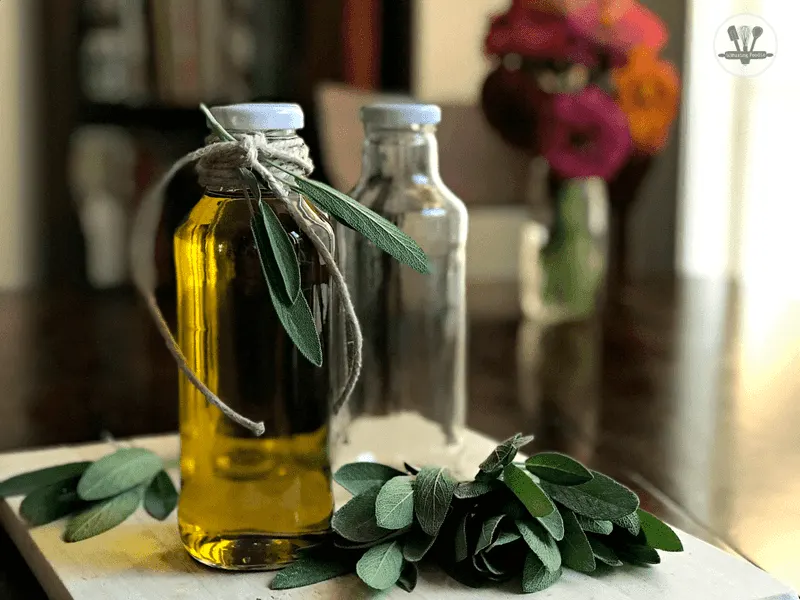
Sage has a warm, peppery flavor with hints of citrus, ideal for infusing oils. This herb pairs excellently with poultry, fish, and creamy pasta dishes. It’s easy to grow, requiring well-drained soil and moderate sunlight. Regular harvesting promotes new growth. A dash of sage-infused oil can elevate roasted turkey or enhance the depth of a creamy soup. Sage’s unique flavor profile and fragrant aroma make it a standout in any herb garden.
Chives
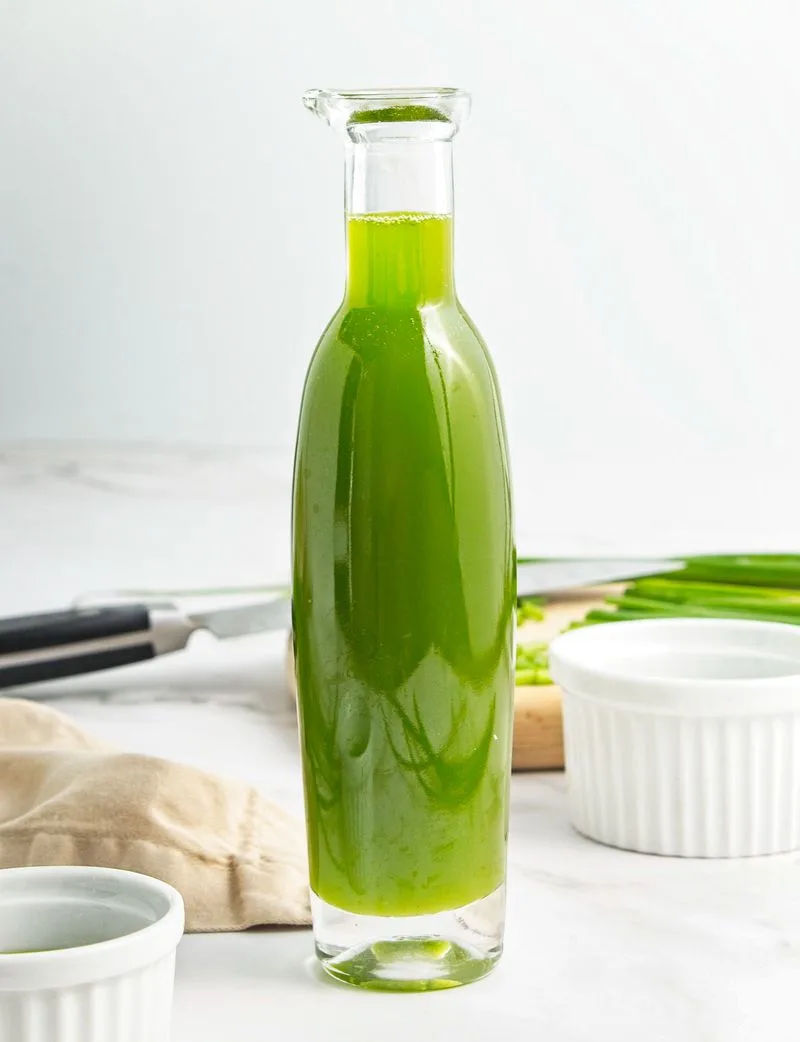
Chives add a mild onion-like flavor to infused oils, perfect for drizzling over vegetables or mixing into vinaigrettes. This herb thrives in both gardens and pots, needing only sunlight and regular watering. Frequent trimming keeps chives productive and lush. Infused oil with chives can transform a simple baked potato or add a savory hit to scrambled eggs. Its delicate flavor and versatility make chives a delightful addition to your herb collection.
Lavender
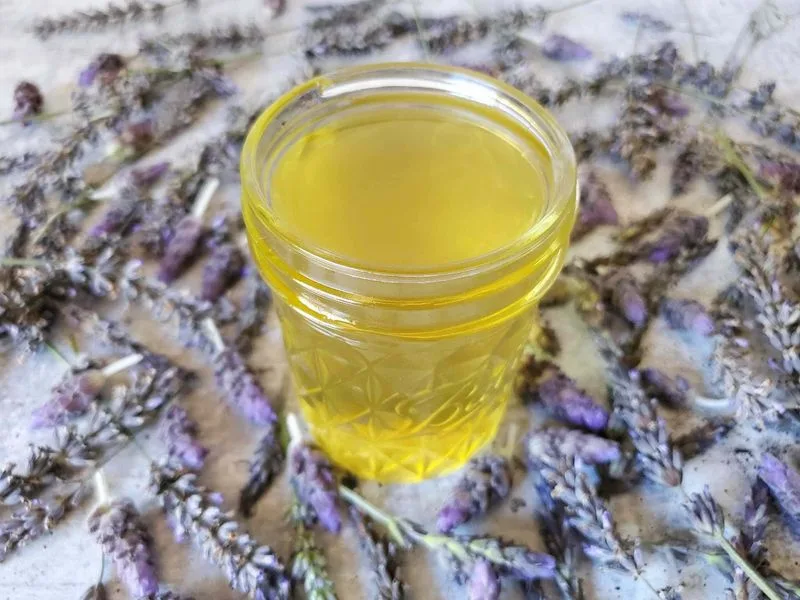
Known for its calming scent, lavender can infuse oils with a unique floral flavor. This is perfect for desserts, cocktails, or even as a massage oil. Lavender prefers well-drained soil and plenty of sunlight. Regular pruning encourages bushier growth. Picture using lavender-infused oil in a cake recipe or as a soothing body oil. Its fragrant and aromatic qualities add a touch of elegance and relaxation to various creations.
Parsley
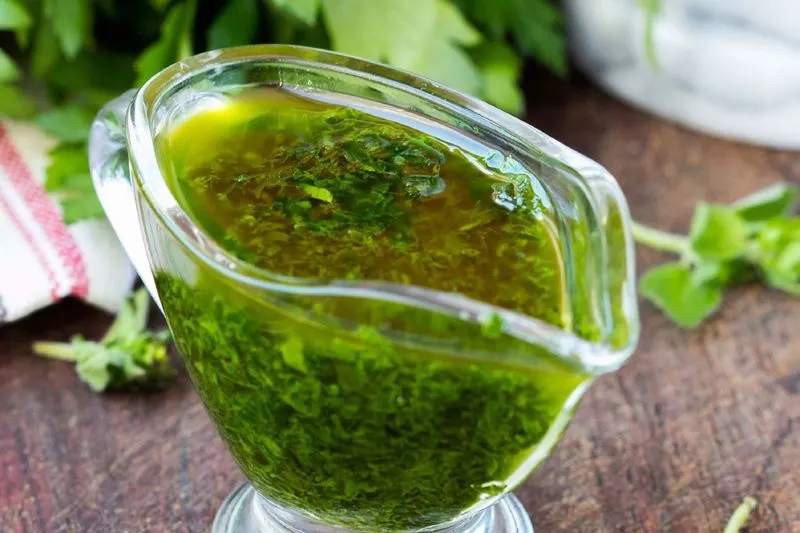
Parsley’s fresh, slightly peppery taste can brighten up infused oils, making them ideal for dressings or marinades. Easy to grow and maintain, parsley thrives in pots or garden beds. It prefers full sun and regular watering. Imagine a parsley-infused oil adding pizzazz to a salad or grilled fish. Its vibrant green hue and refreshing flavor make parsley a versatile and valuable addition to your herb garden.
Dill
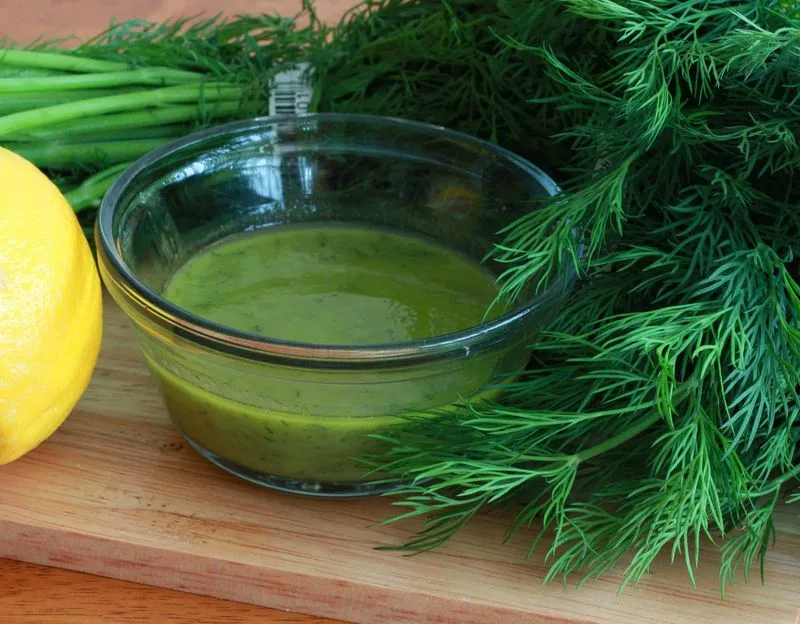
Dill’s distinct anise and citrus notes make it an intriguing choice for infusing oils. This herb pairs beautifully with seafood and potato dishes. It’s easy to grow, favoring sunny spots and well-drained soil. Regular harvesting encourages continued growth. Dill-infused oil can elevate a simple salmon dish or add a refreshing twist to a potato salad. Its aromatic qualities and unique flavor make dill a delightful addition to your garden.
Tarragon
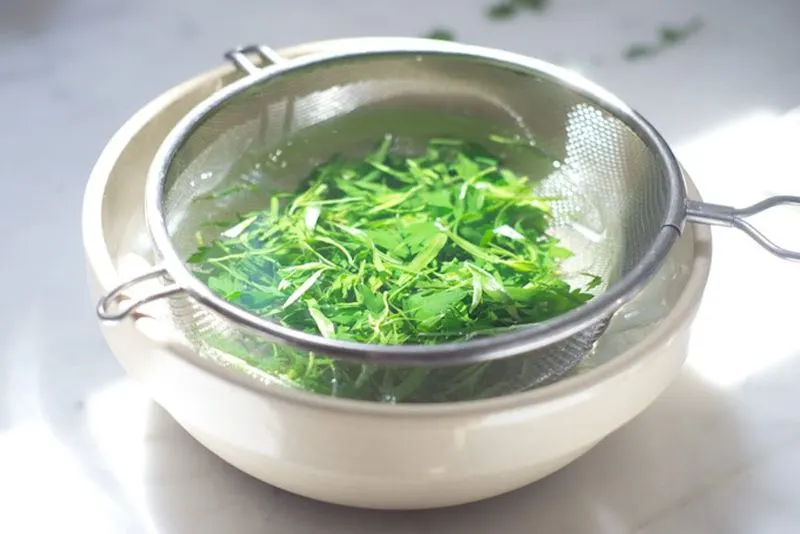
Tarragon offers a subtle anise flavor that can add a sophisticated touch to infused oils. This herb pairs wonderfully with chicken, fish, and salad dressings. Growing tarragon requires well-drained soil and a sunny location. Regular pruning helps maintain its growth. Tarragon-infused oil can enhance a béarnaise sauce or add a hint of elegance to a vinaigrette. Its distinct flavor and aromatic nature make tarragon a prized herb for culinary enthusiasts.
Lemon Balm

Lemon balm’s bright citrus flavor makes it a refreshing choice for infusing oils. Perfect for salad dressings or desserts, it adds a zesty twist to various dishes. Lemon balm thrives in sunny spots with well-drained soil. Regular pruning promotes bushier growth. Imagine using lemon balm-infused oil in a citrusy vinaigrette or as a finishing touch for a dessert. Its invigorating aroma and flavor make lemon balm a delightful addition to your garden.
Marjoram
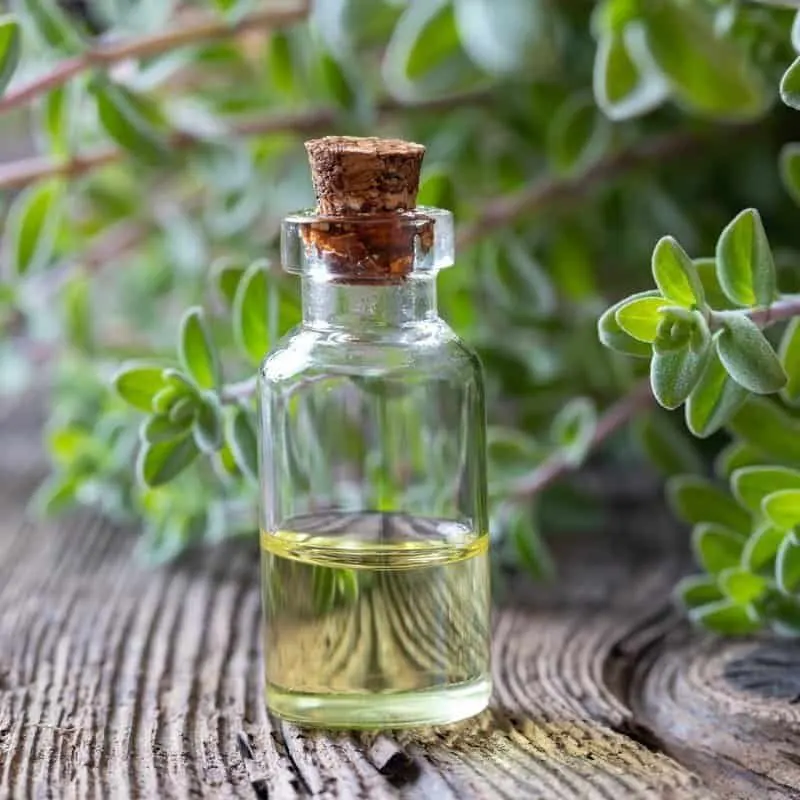
Marjoram brings a sweet and mild pine-like flavor to infused oils, enhancing soups, salads, and meat dishes. This herb is easy to grow, requiring only a sunny spot and occasional watering. Regular pruning encourages a bushy, healthy plant. Marjoram-infused oil can add depth to a rustic soup or bring out the flavors in a roasted chicken dish. Its gentle aroma and versatile taste make marjoram a valuable herb in your culinary arsenal.

